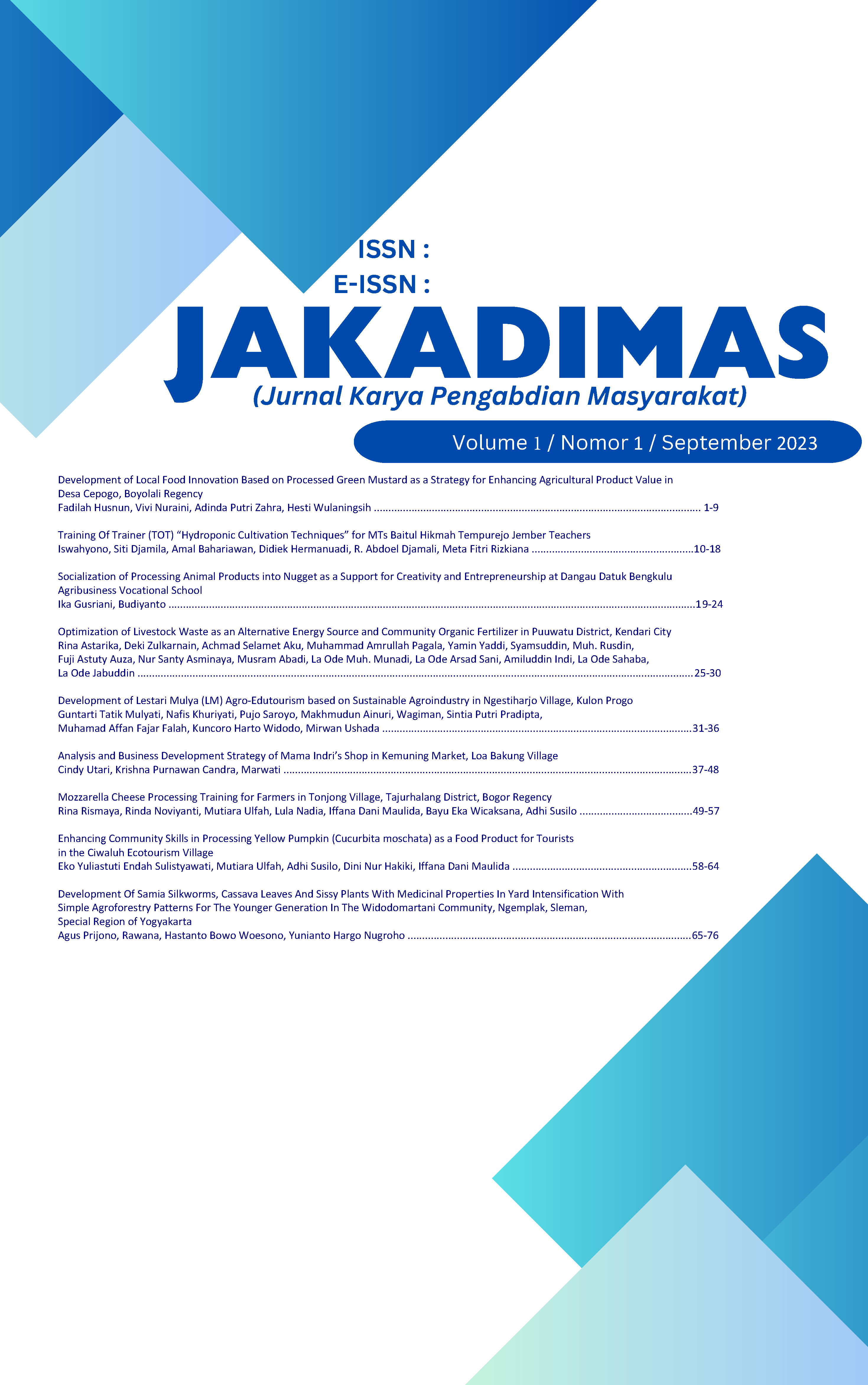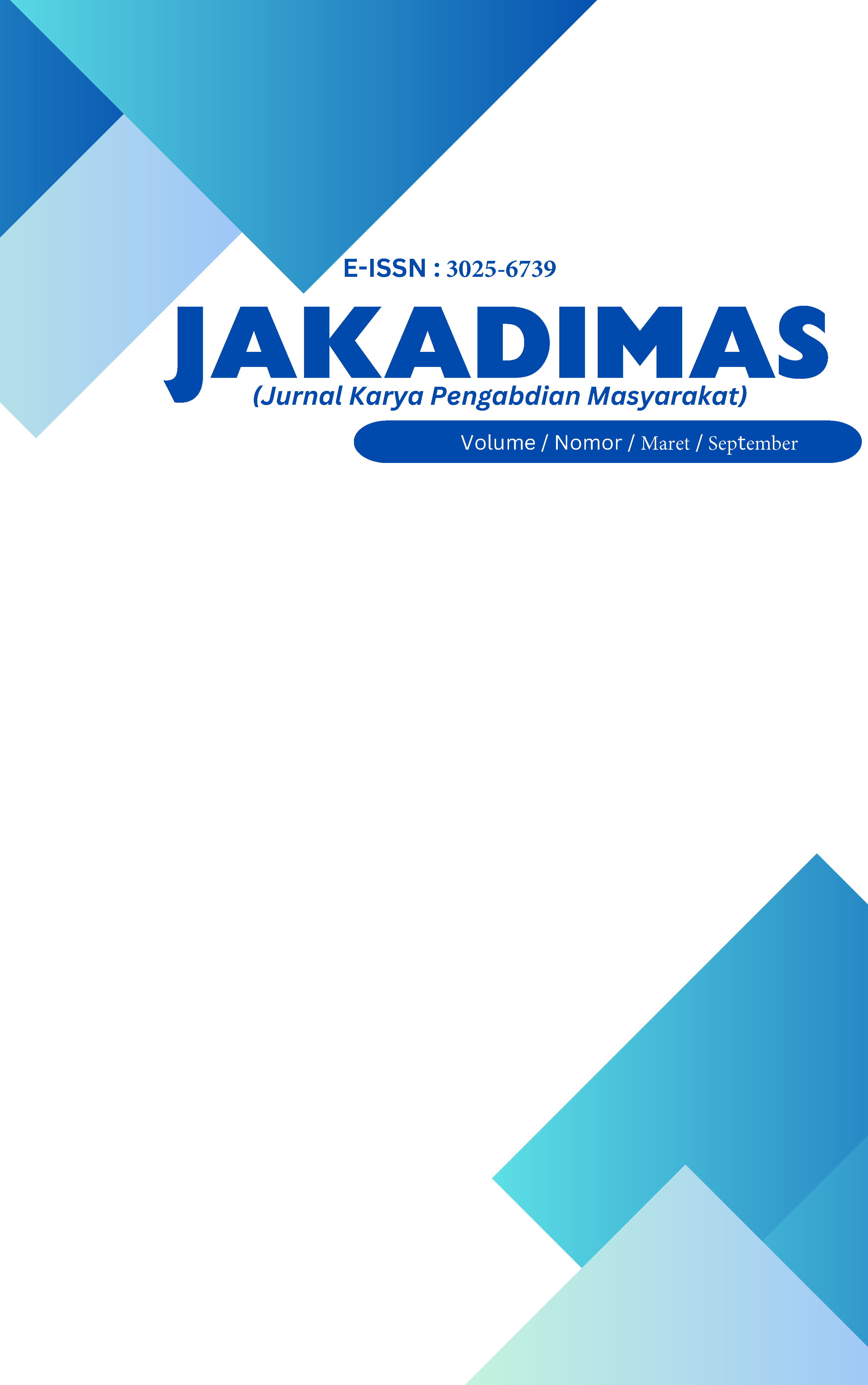Enhancing Community Skills in Processing Yellow Pumpkin (Cucurbita moschata) as a Food Product for Tourists in the Ciwaluh Ecotourism Village
DOI:
https://doi.org/10.33061/jakadimas.v1i1.9474Keywords:
ecotourism, training, pumpkins (Cucurbita moschata), snackAbstract
Bogor Regency has vast and diverse ecotourism potential. One ecotourism in the Bogor Regency area is Ciwaluh Village, Wates Jaya Village, Cigombong District, Bogor Regency. This village produces yellow pumpkins that need to be optimally processed to attract tourists. In improving the skills of ecotourism cadres, training is carried out to enhance skills in processing yellow pumpkins (Cucurbita moschata) into snacks. The methods used in this training were surveys, identification of snack characteristics, demonstrations, and snack processing practices. The training provided is to improve skills in processing yellow pumpkin into various snacks. Based on the results of the pretest and posttest before and after the training for ecotourism cadres in Ciwaluh Village, it was found that skills in processing types of snacks increased by 66.67%. The skill improvement in processing various yellow pumpkin snacks for cadres can still be improved, considering that the variety of yellow pumpkin snacks is still growing in line with the research of yellow pumpkin’s product still being carried out
Downloads
Published
How to Cite
Issue
Section
License
Copyright (c) 2023 JAKADIMAS (Jurnal Karya Pengabdian Masyarakat)

This work is licensed under a Creative Commons Attribution-ShareAlike 4.0 International License.
Authors who publish with this journal agree to the following terms:
- Copyright on any article is retained by the author(s).
- The author grants the journal, right of first publication with the work simultaneously licensed under a Creative Commons Attribution License that allows others to share the work with an acknowledgment of the work’s authorship and initial publication in this journal.
- Authors are able to enter into separate, additional contractual arrangements for the non-exclusive distribution of the journal’s published version of the work (e.g., post it to an institutional repository or publish it in a book), with an acknowledgment of its initial publication in this journal.
- Authors are permitted and encouraged to post their work online (e.g., in institutional repositories or on their website) prior to and during the submission process, as it can lead to productive exchanges, as well as earlier and greater citation of published work.
- The article and any associated published material is distributed under the Creative Commons Attribution-ShareAlike 4.0 International License








